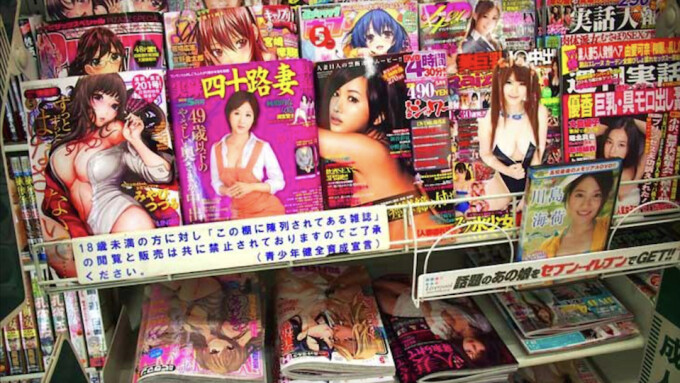TOKYO — A controversial bill that will effectively change the way adult content is produced in Japan, and which has sparked protest among the Japanese adult video community, passed the Japanese Lower House today on its way to being signed into law.
The bill is being pushed by the current ruling coalition, comprised of the conservative Liberal Democratic Party and the religious-conservative Komeito party, along with four opposition parties.
Neither sex workers nor members of the local adult community were consulted by the politicians who drafted the bill.
The bill’s proponents claim that it will “protect people from appearing in pornographic videos against their will.” News about the bill is currently being sensationalized by the local press amidst a moral panic campaign.
The press-driven moral outrage kicked into high gear last month, when some legislators brought up the issue of adult performers during a debate about lowering the legal age of adulthood from from 20 to 18, particularly for legally binding contracts.
New Requirements for Adult Production
The bill, which passed the Lower House today, requires producers to explain to adult performers when they sign contracts “that they will appear in a pornographic film and that the actors may be identified,” the Japan Times explained today.
But the bill also explicitly allows all performers, regardless of age or gender, to “cancel their contracts unconditionally within one year of the release of videos in which they appear, and within two years for the two years following the enactment of the law.”
The new legislation will also require “an interval of at least a month between the signing of the contract and filming, and four months between filming and the release of the video.”
The Japan Times also reported that producers “found guilty of giving false explanations or intimidating actors will face prison sentences of up to three years or a fine of up to ¥3 million ($23,000). Corporations would be subject to a fine of up to ¥100 million.”
Adult Video Community Not Consulted
Actual members of the Japanese adult industry, both performers and producers, gathered at the parliamentary National Diet Building yesterday to protest the bill.
Performer Miyuki Itoi said she wanted lawmakers “to ask people working in the industry about what problems they face, aside from coercion to take part in filming, which is one out of many.”
“I think this is buck-passing of society’s problems,” another performer told the Japan Times. The performer also called for “improved welfare support and other measures that would enable people with financial or other struggles to make different choices.”
Groups of Japanese sex workers have also organized to protest the bill, under "red umbrella" banners.
Misato Nakayama, a representative of the Japan Production Guild, one of the main trade groups that controls the tightly-knit Japanese adult industry, expressed concern that the new law “would restrict the work of actors” and “may thus result in a sharp decrease in work for female actors.”
Conservatism, Feminism and Hypocrisy
XBIZ spoke with a Japanese producer familiar with the situation, who said this headline-grabbing attack on the adult video community in the name of “protecting the youth between 18 and 20” was the product of an alliance between political and religious conservatives and Japanese feminists.
“Japanese politicians only care about next month's election,” the source told XBIZ. “In Japan, the age of majority has been lowered to 18 this year. Politicians and feminists have introduced a terrible bill against adult videos without listening to any of the parties involved.”
The source also indicated that the debate is being muddled by the country's hypocrisy about sexual expression, which is exemplified by the “mosaic,” or pixilation, required to be imposed over images of genitals.
“Even the Japanese law loves the gray area around sexual content,” the source told XBIZ. “The Supreme Court has even ruled that ‘adult content’ is technically legal because ‘there is no explicit sex behind the mosaic’ — even though everyone knows that actual people are having actual sex behind the mosaic.”
The controversial new bill is expected to become law by June 15, the end of the current parliamentary session.






